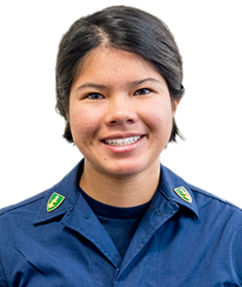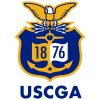 President’s Day weekend can only be described as one thing: awesome. I and eleven other cadets spent the weekend taking an American Institute for Avalanche Research and Education (AIARE) level one course. I took it in Gorham, New Hampshire with the Adventure Club.
President’s Day weekend can only be described as one thing: awesome. I and eleven other cadets spent the weekend taking an American Institute for Avalanche Research and Education (AIARE) level one course. I took it in Gorham, New Hampshire with the Adventure Club.
The first day was in a classroom where we discussed case studies and different types of avalanches and scenarios. The second and third days were field days. On the second day, they took us to a trailhead and taught us how to use avalanche transceivers to find potential victims in the snow. They’d hide a transceiver in the snow and we’d work as a team to find it. We then hiked up the trail and made notes on the different types of snow.
The third day, we drove to Mt. Washington and Tuckerman’s Ravine trail. When we got to the ranger station, we went off trail into the backcountry. Here, we saw up close what avalanche terrain looked like and we practiced different ways of reading the snow to see if there was an avalanche danger. It was snowing the entire time and the view was absolutely stunning.
Looking back, this was by far one of the best experiences at the Academy. It was amazing how much of my Academy education translated over into avalanche science. One of the biggest examples was the use of teamwork during the search and rescue drills. By the end of the session, we were able to find the lost transceiver in less than three minutes, well below the expected time. Other aspects of Academy life transferred over such as making a detailed plan for hiking, risk assessment, and physical fitness.
The biggest thing I learned is that there is so much more to learn about snow. Growing up in Colorado and snowshoeing for the majority of my life, I thought I knew everything there was to know about it. What I found is that it is so much more complex then I previously thought and that in itself was very humbling. That being said, I want to know more about how to read the mountains. Speaking to some of the guides who have been skiing for decades, they said that there is always more to learn, but instead of being discouraged by that, they use it as motivation to keep working and improving their art.
In a few months, I will be going to the fleet and I will have much to learn. However, like with avalanche training, I will use it as a starting point for basic knowledge so that I can do my best in the fleet.
